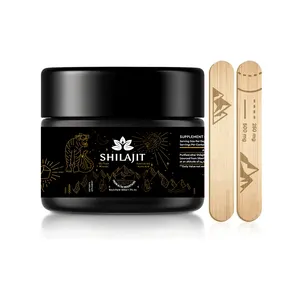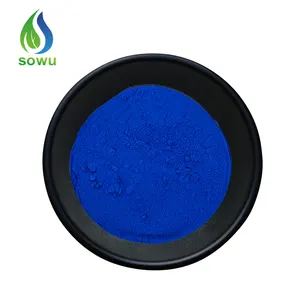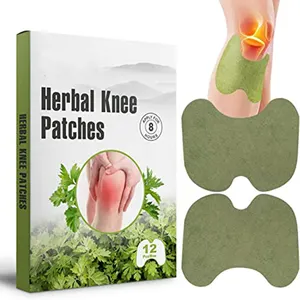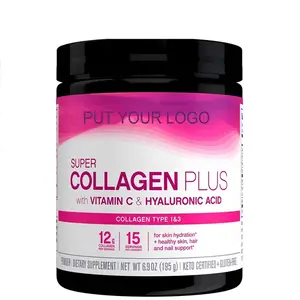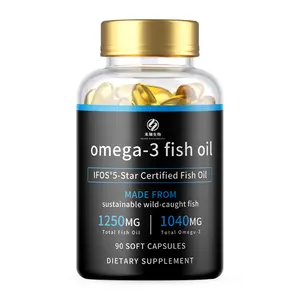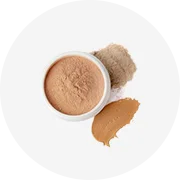ได้รับความนิยมในอุตสาหกรรมของคุณ





10:1, 20:1มะระสารสกัดจากมะระขมสารสกัดจากมะระ Momordica Charantia สารสกัดจาก
฿368.93 - ฿1,844.62
การสั่งซื้อขั้นต่ำ: 25 กิโลกรัม







Natrual แคนตาลูปสารสกัดจากอาหารเกรดแคนตาลูปผง /Hami แตงโมผง
฿800.57 - ฿1,069.88
การสั่งซื้อขั้นต่ำ: 1 กิโลกรัม







เกรดอาหารออร์แกนิกรสชาติดีสําหรับเครื่องดื่มและอาหาร ผงผลไม้แตงโมฮามิเมล่อน
฿368.93 - ฿774.74
การสั่งซื้อขั้นต่ำ: 1 กิโลกรัม







GMP ธรรมชาติที่มีคุณภาพสูงธรรมชาติ Momordica Charantia สารสกัดจาก Charantin สารสกัดจากแตงขม
฿36.90 - ฿40.59
การสั่งซื้อขั้นต่ำ: 1 กิโลกรัม






พฤกษศาสตร์ Momordica Charantia ผงสารสกัดจากมะระผง Charantin 20% สารสกัดจากมะระ
฿664.07 - ฿1,106.77
การสั่งซื้อขั้นต่ำ: 1 กิโลกรัม







สารสกัดจากมะระขี้นกขมบริสุทธิ์สารสกัดจากมะระชารันตินสารสกัดจากแตงโมขม20% 10%
฿1,365.02 - ฿1,807.73
การสั่งซื้อขั้นต่ำ: 25 กิโลกรัม






ที่มีคุณภาพสูงมะระขมสารสกัดจาก/10:1ขมแตงโมสารสกัดจาก/ยาหม่องลูกแพร์สารสกัดจาก
฿368.93 - ฿774.74
การสั่งซื้อขั้นต่ำ: 1 กิโลกรัม






โรงงานอุปทานที่มีคุณภาพสูงสารสกัดจากแตงขม10% Charantin
฿811.64 - ฿922.31
การสั่งซื้อขั้นต่ำ: 1 กิโลกรัม






HONGDA สารสกัดจากแตงโมขม 10% คุณภาพสูงสกัดตัวทําละลายสําหรับอุปทานโรงงานอาหาร
฿258.25 - ฿922.31
การสั่งซื้อขั้นต่ำ: 5 กิโลกรัม






ส่วนผสม 10:1 20:1 สารสกัดจากแตงโมขม Charantin 10% สารสกัดจากแตงโมขม 20%
฿368.93 - ฿737.85
การสั่งซื้อขั้นต่ำ: 25 กิโลกรัม






โรงงานขายตรงธรรมชาติอินทรีย์เมล็ดบริสุทธิ์ขมแตงโมสารสกัดจาก
฿258.25 - ฿848.53
การสั่งซื้อขั้นต่ำ: 1 กิโลกรัม






สารสกัดจากพืชธรรมชาติ Momordica Charantia สารสกัดจากแตงโมขม Charantin
฿368.93 - ฿553.39
การสั่งซื้อขั้นต่ำ: 1 กิโลกรัม






สารสกัดจากมะระขี้นกขมชารันตินสารสกัดจากแตงโมขม30% 10%
฿663.70 - ฿921.94
การสั่งซื้อขั้นต่ำ: 1 กิโลกรัม












ขายส่งสารสกัดจากเมล็ดมะระคาย ดอกแตงโมขม 10% Charantin
฿376.31 - ฿472.23
การสั่งซื้อขั้นต่ำ: 1 กิโลกรัม






ผงสกัดแตงโมฤดูหนาว ผงแตงโมฤดูหนาวจากธรรมชาติบริสุทธิ์ 100% สารสกัดจากมะระขาว
฿405.82 - ฿516.50
การสั่งซื้อขั้นต่ำ: 1 กิโลกรัม












โรงงานอุปทานส่วนผสม 10:1 20:1Bitter Melon Extractแป้งธรรมชาติขมแตงโมผงสเปรย์แห้งขมแตงโมสารสกัด
฿350.48 - ฿442.71
การสั่งซื้อขั้นต่ำ: 1 กิโลกรัม









สารสกัดจากผลไม้แตงโมฤดูหนาวธรรมชาติคุณภาพสูง 10:1 สารสกัดจากแตงโมฤดูหนาว
฿110.31 - ฿811.64
การสั่งซื้อขั้นต่ำ: 1 กิโลกรัม












ส่วนผสมคุณภาพสูง 10:1 20:1 สารสกัดจากแตงโมขมผงจํานวนมากสารสกัดจากแตงโมขม
฿368.93 - ฿922.31
การสั่งซื้อขั้นต่ำ: 4 กิโลกรัม






ที่ขายดีที่สุดอินทรีย์ขมแตงโมสารสกัดจาก Charantin 5% 10% ขมแตงโมสารสกัดจาก
฿922.31 - ฿1,291.24
การสั่งซื้อขั้นต่ำ: 1 กิโลกรัม




สารสกัดแตงโมขม TLC 10:1 ชารันติน 10% -30% สารสกัดจากมะระขมด
฿737.85 - ฿1,844.62
การสั่งซื้อขั้นต่ำ: 5 กิโลกรัม






สารสกัดจากมะระขี้นกขมแห้ง5% ผงน้ำผลไม้คาเรล่า
฿442.71 - ฿922.31
การสั่งซื้อขั้นต่ำ: 1 กิโลกรัม
การจัดส่งต่อชิ้น: ฿1,069.88






CiYuan โรงงาน Momordica 10% Charantia ผงสารสกัดจากมะระสารสกัดจากจำนวนมากราคา
฿664.44
การสั่งซื้อขั้นต่ำ: 2 กิโลกรัม
การจัดส่งต่อชิ้น: ฿1,254.34






น้ำที่ละลายน้ำได้คุณภาพดีขมแตงโมสารสกัดจาก/ยาหม่องลูกแพร์ผลไม้สารสกัดจากผง
฿368.93 - ฿1,660.16
การสั่งซื้อขั้นต่ำ: 25 กิโลกรัม






ธรรมชาติอินทรีย์ตัวอย่างฟรีขมแตงโมสารสกัดจาก65%-98% ขมแตงโมเปปไทด์ผง
฿1,702.59 - ฿3,405.54
การสั่งซื้อขั้นต่ำ: 25 กิโลกรัม






ราคาขายส่งสารสกัดจากแตงโมขม 1% -10% Charantin Momordica Charantia ผงสารสกัดจากผลไม้
฿737.85 - ฿1,291.24
การสั่งซื้อขั้นต่ำ: 1 กิโลกรัม






ผู้ผลิตขายสารสกัดจากเมล็ดแตงโมฤดูหนาวคุณภาพสูงผงแตงโมฤดูหนาวสารสกัดจากแตงโมฤดูหนาว
฿308.79 - ฿448.98
การสั่งซื้อขั้นต่ำ: 1 กิโลกรัม






ฮาลาลราคาที่ดีที่สุดที่มีคุณภาพสูง Momordica Charantia สารสกัดจากขมแตงโมสารสกัดจาก
฿553.39 - ฿2,951.39
การสั่งซื้อขั้นต่ำ: 1 กิโลกรัม
หมวดหมู่ยอดนิยม
เกี่ยวกับ สารสกัดจากแตงโม
สารสกัดจากแตงโม ไม่ใช่เรื่องใหม่สำหรับคนทั่วไปในปัจจุบันและไม่ถือว่าเป็นสิ่งต้องห้ามอีกต่อไป หากคุณกำลังมองหาความสุขสุดท้ายนี้คุณต้องตรวจสอบความยิ่งใหญ่ คอลเลกชัน สารสกัดจากแตงโม ที่ Alibaba.com เหล่านี้ยั่วยวนและโค้ง สารสกัดจากแตงโม คุ้มค่ากับเงินทุกบาทและมั่นใจว่าจะทำให้ค่ำคืนนี้พิเศษสำหรับคุณ ตุ๊กตาเหล่านี้มีลักษณะเหมือนจริงตั้งแต่ขนไปจนถึงปลายเท้าในทุกแง่มุม
ไม่ว่าคุณจะเป็นคนขี้เหงาที่กำลังมองหาคู่ชีวิตที่เหมือนมีชีวิตหรือคู่รักที่ต้องการเติมชีวิตชีวาให้กับชีวิตคุณสามารถใช้สิ่งเหล่านี้ได้ . สารสกัดจากแตงโม สำหรับจุดไฟนั้น ที่งดงามเหล่านี้ สารสกัดจากแตงโม สามารถปรับแต่งได้ตามความคาดหวังของคุณ น่าทึ่งเหล่านี้ สารสกัดจากแตงโม มีให้เลือกทั้งชายและหญิงและทำจากซิลิโคนเกรดยาเพื่อความปลอดภัยในการใช้งาน รับตอนนี้และเพลิดเพลินไปกับค่ำคืนแห่งความหลงใหลและไฟ
Alibaba.com ขอเสนอสิ่งที่น่าทึ่งเหล่านี้ สารสกัดจากแตงโม ในทุกรูปร่างขนาดและชาติพันธุ์ ไม่ว่าความต้องการของคุณสำหรับไฟล์. สารสกัดจากแตงโม คุณสามารถหาได้ทั้งหมดบนไซต์ เหล่านี้ สารสกัดจากแตงโม ได้รับการขึ้นรูปโดยช่างฝีมือที่ดีที่สุดและทุกรายละเอียดที่ซับซ้อนจะได้รับการตรวจสอบอย่างละเอียด ตุ๊กตาเหล่านี้มีดวงตาผมเล็บและส่วนอื่น ๆ ของร่างกายคล้ายกับคนในชีวิตจริง
Alibaba.com ให้บริการที่หลากหลาย สารสกัดจากแตงโม ที่สามารถช่วยคุณซื้อผลิตภัณฑ์ที่เหมาะสมกับงบประมาณของคุณและข้อกำหนดอื่น ๆ ผลิตภัณฑ์เหล่านี้ปลอดภัยต่อการใช้งานได้รับการรับรองและเป็นมิตรกับสิ่งแวดล้อม มีคำสั่งซื้อ OEM สำหรับผลิตภัณฑ์เหล่านี้
ไม่ว่าคุณจะเป็นคนขี้เหงาที่กำลังมองหาคู่ชีวิตที่เหมือนมีชีวิตหรือคู่รักที่ต้องการเติมชีวิตชีวาให้กับชีวิตคุณสามารถใช้สิ่งเหล่านี้ได้ . สารสกัดจากแตงโม สำหรับจุดไฟนั้น ที่งดงามเหล่านี้ สารสกัดจากแตงโม สามารถปรับแต่งได้ตามความคาดหวังของคุณ น่าทึ่งเหล่านี้ สารสกัดจากแตงโม มีให้เลือกทั้งชายและหญิงและทำจากซิลิโคนเกรดยาเพื่อความปลอดภัยในการใช้งาน รับตอนนี้และเพลิดเพลินไปกับค่ำคืนแห่งความหลงใหลและไฟ
Alibaba.com ขอเสนอสิ่งที่น่าทึ่งเหล่านี้ สารสกัดจากแตงโม ในทุกรูปร่างขนาดและชาติพันธุ์ ไม่ว่าความต้องการของคุณสำหรับไฟล์. สารสกัดจากแตงโม คุณสามารถหาได้ทั้งหมดบนไซต์ เหล่านี้ สารสกัดจากแตงโม ได้รับการขึ้นรูปโดยช่างฝีมือที่ดีที่สุดและทุกรายละเอียดที่ซับซ้อนจะได้รับการตรวจสอบอย่างละเอียด ตุ๊กตาเหล่านี้มีดวงตาผมเล็บและส่วนอื่น ๆ ของร่างกายคล้ายกับคนในชีวิตจริง
Alibaba.com ให้บริการที่หลากหลาย สารสกัดจากแตงโม ที่สามารถช่วยคุณซื้อผลิตภัณฑ์ที่เหมาะสมกับงบประมาณของคุณและข้อกำหนดอื่น ๆ ผลิตภัณฑ์เหล่านี้ปลอดภัยต่อการใช้งานได้รับการรับรองและเป็นมิตรกับสิ่งแวดล้อม มีคำสั่งซื้อ OEM สำหรับผลิตภัณฑ์เหล่านี้
